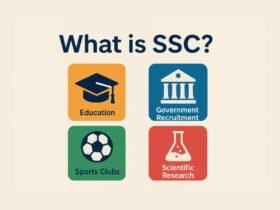Leadership education has always played a crucial role in the development and resilience of communities.
For Native American communities, this significance is magnified due to the unique cultural, historical, and social challenges they face. Investing in leadership education specifically tailored to Native American communities can be a transformative force, helping to build strong, empowered leaders who are deeply connected to their heritage and committed to driving positive change.
This article delves into how leadership education can uplift Native American communities, fostering a future where tradition and progress coexist.
Emphasizing the Role of Cultural Values in Leadership Education
Leadership education tailored to Native American communities emphasizes the integration of cultural values and traditions. Native American leadership is often grounded in principles like community cohesion, respect for the land, and the importance of intergenerational knowledge transfer.
By focusing on these values, leadership programs can produce well-rounded leaders who honor their culture while addressing contemporary issues.
Native American leaders today must navigate both the preservation of cultural identity and the demands of the modern world. This dual responsibility requires educational programs that go beyond conventional leadership training.
These programs should incorporate the teaching of traditional knowledge, stories, and values while also building skills in areas like negotiation, conflict resolution, and strategic planning.
For instance, learning about governance through a traditional lens can be paired with training in modern governance practices, empowering leaders to bridge the gap between the old and the new.
Culturally relevant leadership programs provide Native American leaders today with a strong foundation to advocate for their communities effectively. They become equipped to engage with government entities, manage tribal resources, and promote sustainable development, all while staying rooted in their cultural values.
Building Pathways for Economic Empowerment
Economic empowerment is essential for the advancement of Native American communities. Leadership education can provide individuals with the tools they need to drive economic development, create jobs, and manage tribal enterprises.
Many Native communities face economic challenges due to historical dislocation, lack of infrastructure, and limited access to financial resources. Educating future leaders to address these challenges through innovative strategies can be a game-changer.
Leadership programs focusing on economic empowerment often cover topics like entrepreneurship, financial literacy, and sustainable business practices. They also emphasize the importance of self-governance and self-determination in economic decisions.
By understanding these concepts, Native American leaders can foster economic growth that benefits the entire community. Moreover, these programs can instill a mindset of long-term planning, ensuring that economic initiatives are sustainable and in harmony with cultural values.
The impact of leadership education on economic empowerment can be seen in the success of various Native-owned businesses and tribal enterprises. These initiatives contribute to community well-being by creating employment opportunities, generating revenue for tribal programs, and preserving cultural practices.
Ultimately, leadership education can drive the economic resilience of Native American communities, allowing them to thrive in a competitive and rapidly changing world.
Strengthening Political Advocacy and Representation
Political advocacy and representation are crucial for protecting Native American rights, resources, and cultural heritage. Leadership education can empower individuals to take active roles in political processes, whether at the tribal, state, or national level. By understanding governance structures, legal frameworks, and policy-making processes, Native American leaders can better advocate for their communities and secure the resources and recognition they deserve.
Leadership programs designed for Native American communities often focus on building skills in public speaking, diplomacy, and legislative processes. They also emphasize the importance of coalition-building, both within and outside Native communities.
By learning how to navigate complex political landscapes, Native American leaders are better positioned to influence policy decisions that impact their people.
One of the key outcomes of strong political leadership is the ability to protect tribal sovereignty. Leadership education enables Native American leaders to advocate effectively for their rights to self-governance, control over natural resources, and preservation of cultural practices.
As more Native Americans take on leadership roles in government and advocacy, they can shape policies that reflect their communities’ needs and aspirations, ultimately leading to greater political representation and equity.
Enhancing Social and Community Development
Leadership education is vital for social and community development in Native American communities. Strong leaders are essential for addressing critical issues like health disparities, educational access, and social justice.
By empowering leaders with the knowledge and skills needed to tackle these challenges, leadership education can create ripple effects throughout the community.
One focus of leadership education in Native American communities is on holistic approaches to well-being. This includes promoting mental, physical, and spiritual health while addressing social determinants like poverty, education, and access to healthcare.
Programs that integrate traditional healing practices with modern health initiatives can be particularly effective in promoting community well-being.
In addition to addressing health and social issues, leadership education can also play a role in strengthening educational opportunities for Native youth. Leaders who prioritize education can advocate for better schools, culturally relevant curricula, and mentorship programs that encourage young people to pursue higher education.
By doing so, they help build a pipeline of future leaders who are committed to giving back to their communities.
Fostering Intergenerational Knowledge Transfer
In many Native American cultures, leadership is seen as a shared responsibility that transcends generations. Leadership education programs that emphasize intergenerational knowledge transfer can help preserve cultural practices while preparing the next generation of leaders.
Elders play a critical role in passing down wisdom, stories, and traditions that form the foundation of community identity.
By integrating elders into leadership education programs, communities can create a learning environment that respects both traditional and contemporary knowledge. This approach strengthens cultural continuity and also helps young leaders develop a deep sense of identity and purpose.
As they learn from their elders, they also gain insights into how to apply cultural principles to address current challenges.
Programs that support intergenerational knowledge transfer also promote a sense of community cohesion and unity. They reinforce the idea that leadership is not about individual gain but about serving the collective well-being of the community. By fostering strong connections between generations, leadership education helps sustain the cultural and social fabric of Native American communities for years to come.
All in all, leadership education is a powerful tool for strengthening Native American communities. By emphasizing cultural values, economic empowerment, political advocacy, social development, and intergenerational knowledge transfer, these programs can produce leaders who are both rooted in tradition and prepared to face modern challenges.
As more Native American leaders today benefit from targeted leadership education, they will be better equipped to drive positive change, protect their communities’ interests, and build a future where culture and progress go hand in hand.













